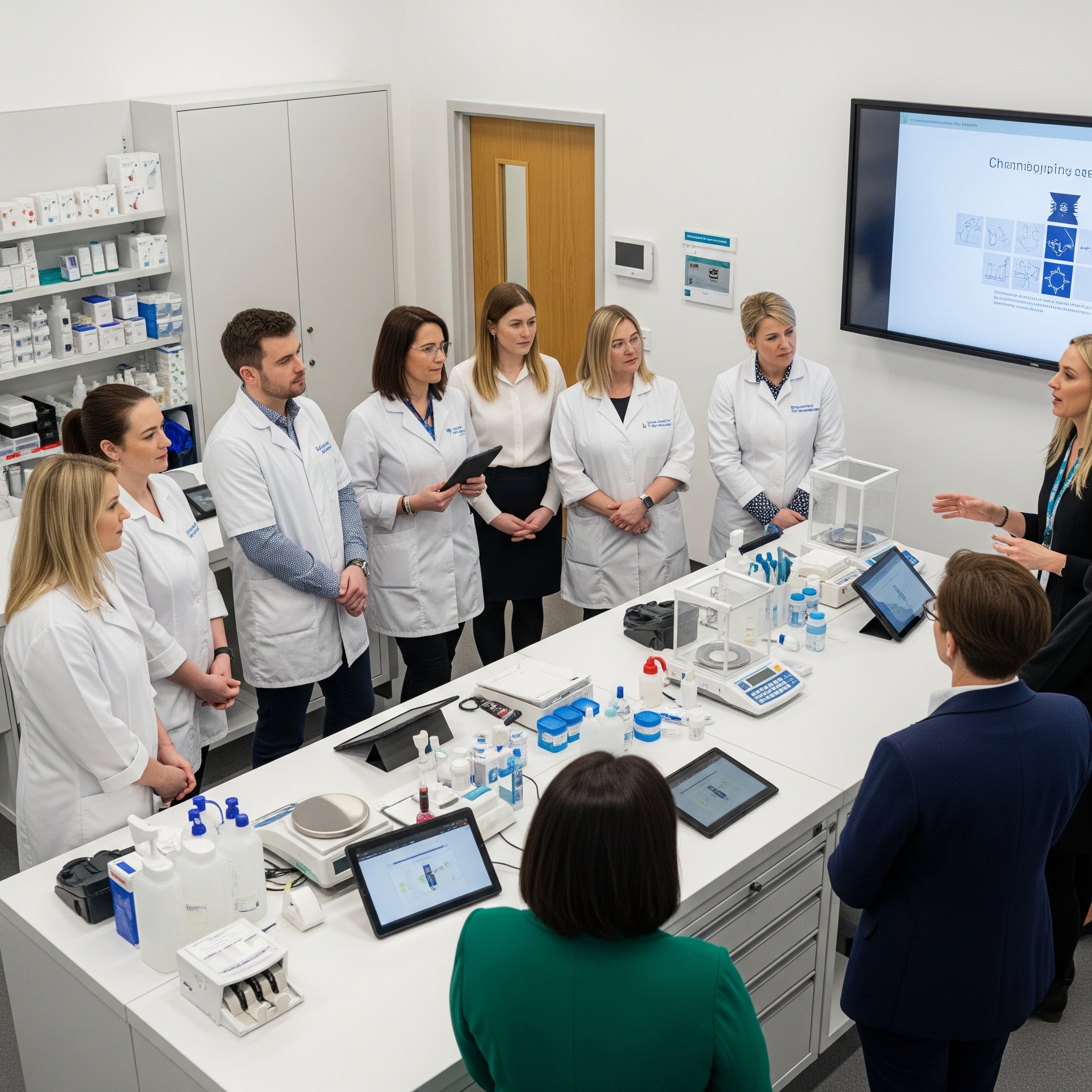Continuing Professional Development (CPD) is a mandatory and continuous process for pharmacists in Ireland. Defined as a commitment to lifelong learning, CPD ensures pharmacists maintain appropriate experience, stay current with education and implement learning within professional practice.
Under the Pharmacy Act 2007, all pharmacists registered with the Pharmaceutical Society of Ireland (PSI) are legally required to undertake CPD. The specific obligations are detailed in the PSI (Continuing Professional Development) Rules 2015. This includes keeping an online record of their CPD in an ePortfolio and providing evidence of this to the Irish Institute of Pharmacy (IIOP) when requested. Non-compliance risks removal from the register. Read more information on the PSI website.
Current CPD system in Ireland
The current CPD system in Ireland is designed as a portfolio-based, self-reflective framework. This approach encourages pharmacists to identify their own learning needs and does not rely on accumulating traditional CPD points or contact hours.
The system is overseen by the Irish Institute of Pharmacy (IIOP), which was established by the PSI in 2013. The IIOP plays a crucial role in managing the CPD system, providing the ePortfolio tool and offering developmental support to pharmacists.
The Irish CPD model is rooted in a self-directed approach. Pharmacists are responsible for identifying their own learning needs and tailoring their development plan accordingly.
The five-stage CPD cycle for pharmacists
Pharmacists must engage in a structured cycle to ensure their learning is impactful:
- Self-appraisal. The process begins with an assessment of current knowledge and skills. Pharmacists identify gaps or areas where their practice could be improved.
- Planning. Based on the appraisal, pharmacists establish specific learning objectives.
- Action. This stage involves completing relevant CPD activities, which can range from formal courses to peer discussions.
- Documentation. All activities and outcomes must be recorded in a dedicated ePortfolio via the Irish Institute of Pharmacy (IIOP) portal.
- Evaluation: The final stage requires reflection on how the learning has improved professional practice and patient outcomes.
The core of the Irish CPD model is reflective practice. Pharmacists are encouraged to focus on the practical application of new knowledge to enhance patient care, rather than simply ticking a box.
Recommended CPD activities and resources for pharmacists
CPD activities can be both formal and informal, catering to diverse learning styles:
Formal learning:
- IIoP-accredited programs. The Irish Institute of Pharmacy (IIoP) provides a range of accredited programs focusing on critical areas such as cardiovascular disease, diabetes and antimicrobial stewardship.
- External providers. Many organisations offer relevant courses. Pharmacists can utilise free modules from providers like Med iLearning or access specialised content from sources like Pharmacy News Ireland and Irish Pharmacist. While external courses are permitted, pharmacists must ensure their relevance and quality.
Informal learning:
Engaging with colleagues, reviewing complex cases, participating in peer discussions and on-the-job training offer valuable insights and learning opportunities.
Compliance and best practices
Maintaining compliance with CPD requirements is essential for remaining on the PSI register. Pharmacists in Ireland must regularly engage in CPD activities and annually document their learning cycles through the IIOP portal. For those pursuing specialised roles, such as in hospitals or the pharmaceutical industry, advanced CPD frameworks are available to support professional growth.
By committing to continuous learning, pharmacists in Ireland play a vital role in upholding the high standards of the profession and delivering patient care.

